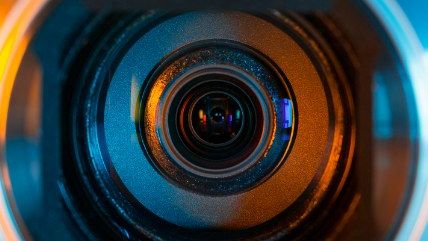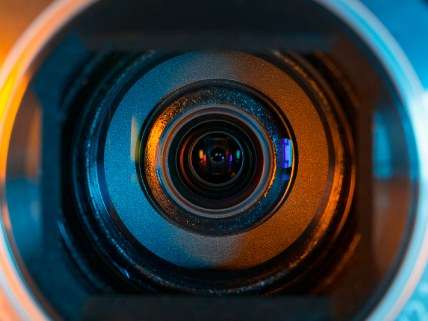Secretive National Security Letters Can Help FBI More Easily Snoop on Journalists
It's not about fighting terrorism; it's about finding leakers.


Right around the same time in 2013 Edward Snowden was working to leak information about the federal government's mass domestic surveillance of Americans, the Associated Press discovered that the Department of Justice had secretly collected months of phone call records of a pack of its reporters, all likely in an attempt to find the source of a leak about a foiled terrorist plot in Yemen.
It's important to note that this secret investigation was all about trying to find a leaker, not, say, a suspected terrorist. The outrage over the Justice Department's behavior led to some nominal reforms on how it would use subpoenas to get phone records of media outlets.
But, as The Intercept, points out this week, what happened to the Associated Press is merely one way that the federal government is able to quietly snoop on what the media is up to. The secretive National Security Letter (NSL) can also be used to collect communication data from media outlets. NSLs are orders through which the government demands that data companies or information service companies provide information about the communications of a targeted user. Furthermore, the companies are legally obligated to keep any information about the letters, including having received them at all, secret. The use of these letters expanded significantly after the Sept. 11 attack as a tool to try to track down information about terrorist plots.
The use of the letters has become controversial not just because the government attempts to keep their contents secret for as long as possible—secrecy they've finally started easing up on after lawsuits and post-Snowden reforms to surveillance rules. They're also controversial due to a lack of oversight from the judicial branch. The Department of Justice is in complete control over their use. So how can we be sure they'll actually be used to fight terrorism and not help perpetuate a war on leakers? The Intercept has been provided an unredacted copy of the classified rules for using NSL letters against journalists or media outlets and found that the FBI and Justice Department call all the shots. And in some cases, the FBI doesn't even need to go to the Justice Department for authorization to use the letters:
The rules stipulate that obtaining a journalist's records with a National Security Letter (or NSL) requires the sign-off of the FBI's general counsel and the executive assistant director of the bureau's National Security Branch, in addition to the regular chain of approval. Generally speaking, there are a variety of FBI officials, including the agents in charge of field offices, who can sign off that an NSL is "relevant" to a national security investigation.
There is an extra step under the rules if the NSL targets a journalist in order "to identify confidential news media sources." In that case, the general counsel and the executive assistant director must first consult with the assistant attorney general for the Justice Department's National Security Division.
But if the NSL is trying to identify a leaker by targeting the records of the potential source, and not the journalist, the Justice Department doesn't need to be involved.
The guidelines also specify that the extra oversight layers do not apply if the journalist is believed to be a spy or is part of a news organization "associated with a foreign intelligence service" or "otherwise acting on behalf of a foreign power." Unless, again, the purpose is to identify a leak, in which case, the general counsel and executive assistant director must approve the request.
Recall that during all the arguing over the ethics of Snowden's leaks, there was plenty of debate from critics about whether Snowden was acting in such a way to benefit foreign governments (regardless of whether that makes any sense). Journalist Glenn Greenwald's partner David Miranda was detained by the U.K. government briefly and questioned under the country's Terrorist Act. The government would no doubt insist that these authorizations are in place to help the government track down terrorism, but what we see in practice is significantly different.
And as The Intercept also notes, the Department of Justice's reforms say they're not going to go after journalists themselves with subpoenas and prosecution for "newsgathering activities," but those reforms have nothing to do with the use of NSLs and don't affect them. (And is of little comfort to somebody turning to the media as a whistleblower in any event).
Also keep in mind that the FBI is also trying to expand what type of information they can get with NSLs to include more email metadata and online browser history. An attempt to get authority passed through the Senate failed just barely last month, but is likely to pass when it returns for another vote.
We do have one slight piece of good news on federal government transparency and the media this week. President Barack Obama signed into law a bill intended to reform the Freedom of Information Act to attempt to make federal agencies more open and responsive to requests and puts a 25 year limit on trying to withhold documents through exemptions. Though, as the Reporters Committee for the Freedom of the Press notes, some of this law is simply codifying what the president ordered via memo when he first took office, and yet his administration has done an absolutely terrible job at complying with FIOA requests.


Show Comments (17)